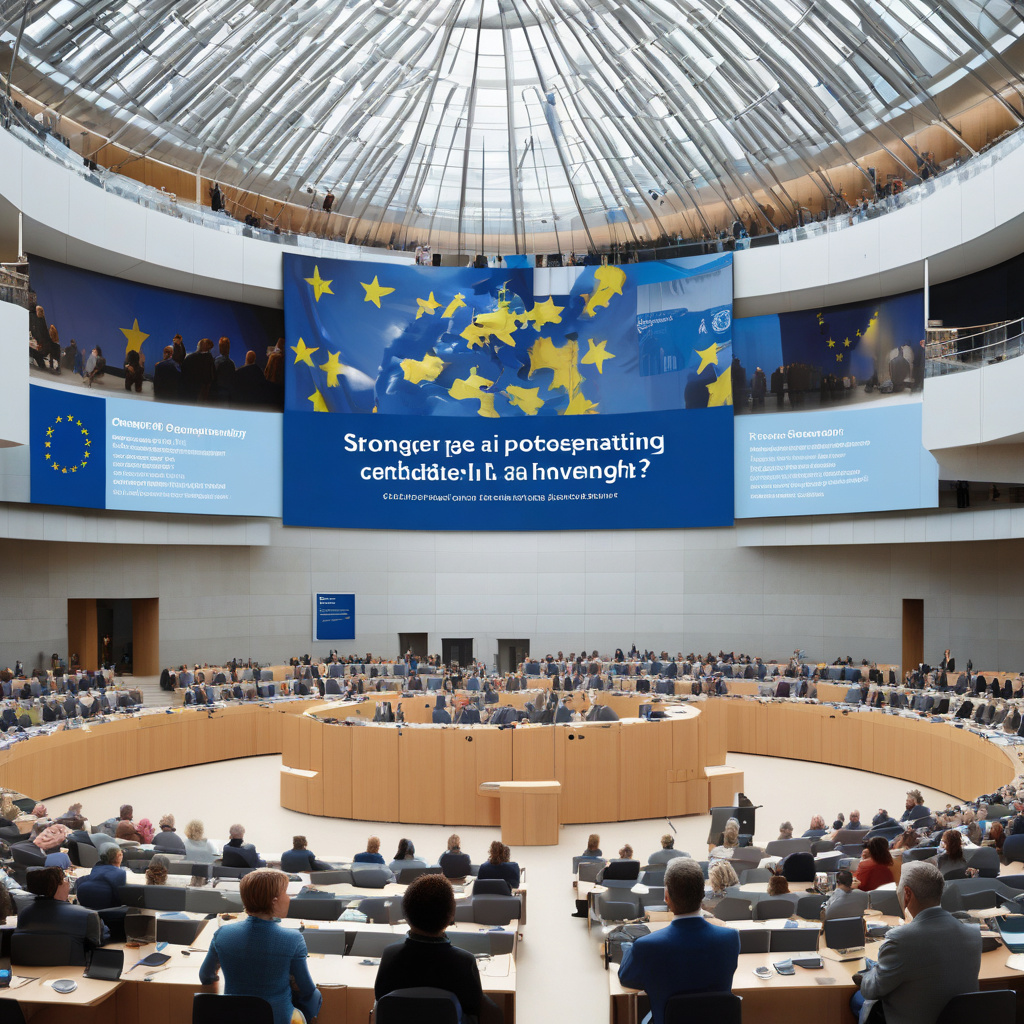EU Calls for Stricter AI Regulations Following Grok Chatbot Controversy
The European Union is taking a proactive stance in the realm of artificial intelligence (AI) following a recent controversy surrounding the Grok chatbot. As concerns over transparency and systemic risk safeguards have been brought to the forefront, the EU is now gearing up to introduce new compliance guidelines for AI developers. This move underscores the growing importance of regulating AI technologies to ensure ethical standards and mitigate potential risks.
The Grok chatbot incident has sparked a heated debate within the tech community and beyond. Developed by an AI startup, Grok gained widespread attention for its advanced conversational capabilities. However, as users delved deeper into conversations with the chatbot, questions arose regarding the transparency of its operations and the potential risks associated with its decision-making processes. This prompted calls for greater oversight and accountability in the development and deployment of AI systems.
In response to these concerns, the European Union is set to unveil comprehensive guidelines aimed at enhancing the regulation of AI technologies. These guidelines are expected to outline clear requirements for developers regarding transparency, accountability, and risk assessment. By establishing a framework for AI governance, the EU aims to ensure that AI systems operate in a manner that is consistent with ethical principles and societal values.
One key aspect of the upcoming guidelines is the emphasis on transparency in AI systems. Developers will be required to provide clear explanations of how their AI technologies operate, including the data sources used, the decision-making processes involved, and the potential implications of their actions. By promoting transparency, the EU aims to build trust among users and stakeholders and enable them to better understand and assess the impact of AI systems on society.
Moreover, the new guidelines will also focus on addressing systemic risks associated with AI technologies. Developers will be required to conduct thorough risk assessments to identify and mitigate potential harms that their AI systems may pose. By proactively addressing risks such as bias, discrimination, and privacy violations, developers can help ensure that their AI technologies do not inadvertently cause harm to individuals or society as a whole.
The EU’s push for stronger AI regulations reflects a broader trend towards increased oversight of emerging technologies. As AI continues to play a prominent role in various aspects of our lives, from healthcare to finance to transportation, ensuring that these technologies are developed and deployed responsibly is paramount. By setting clear guidelines for AI developers, the EU is taking a proactive step towards promoting the ethical and safe use of AI systems.
In conclusion, the European Union’s decision to introduce new compliance guidelines for AI developers in the wake of the Grok chatbot controversy marks a significant development in the regulation of AI technologies. By emphasizing transparency, accountability, and risk assessment, the EU aims to foster trust, promote ethical practices, and mitigate potential harms associated with AI systems. As AI technologies continue to advance at a rapid pace, robust regulatory frameworks will be essential to ensure that these technologies are harnessed for the benefit of society.
AI, EU, Regulations, Compliance, Ethics












